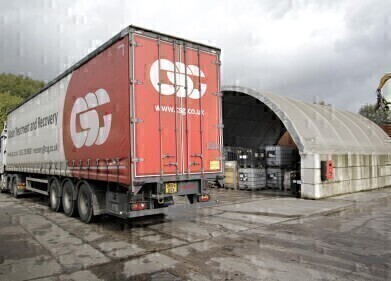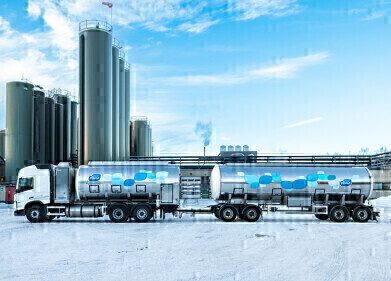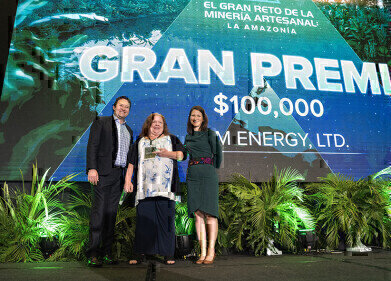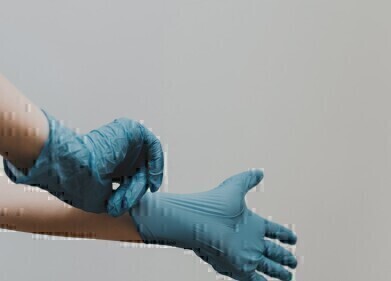-
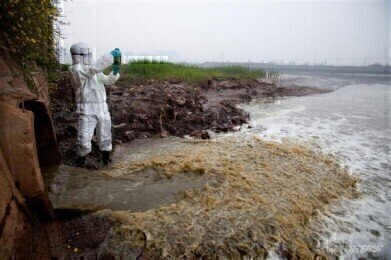 A Greenpeace campaigner takes a sample of yellow-coloured waste water from the discharge pipe at the Youngor Textiles Factory.
A Greenpeace campaigner takes a sample of yellow-coloured waste water from the discharge pipe at the Youngor Textiles Factory.
Hazardous Waste
’Impossible is nothing’ as Adidas join Nike and Puma in cleaning up their supply chain
Sep 02 2011
Adidas, the world’s second largest sportswear brand, has responded to the Greenpeace ’Detox’ challenge by committing to zero discharge of hazardous chemicals throughout its entire supply chain and across the entire lifecycle of its products, by 2020.
The commitment comes just seven weeks after the publication of the Greenpeace report, "Dirty Laundry", which revealed commercial links between major clothing brands, including Adidas, Nike and Puma , and suppliers responsible for releasing toxic pollution into Chinese rivers. The follow-up product testing report, released last week, "Dirty Laundry II - Hung out to dry" provided further evidence that chemicals capable of breaking down into persistent, bioaccumulative, and hormone-disrupting substances, such as nonylphenol (NP), were being used during the manufacturing processes of over 14 international brands, including H&M and Abercrombie and Fitch.
"Adidas’ commitment to zero discharges shows it recognises that there are no ’safe limits’ and that only total elimination of hazardous chemicals from its supply chain is acceptable. This is great news for our environment, our rivers and the millions of people in China and elsewhere who depend on waterways for their livelihoods" said Yifang Li, Greenpeace East Asia Toxic Campaigner.
"The road towards a zero discharge is a long one and while Nike, Adidas and Puma are now competing and collaborating in the race towards a toxic-free future, it is urgent that they turn words into actions and provide concrete and ambitious implementation plans and begin making real changes on the ground," continued Li.
As part of its commitment, Adidas has included some very specific and immediate actions, including a NPE phase-out map based on a `no safe levels´ approach, and a commitment to work with all levels of their supply chain. Adidas has also agreed to address the principle of the "right to know" by ensuring full transparency about the chemicals being released from its suppliers’ factories. It has explicitly stated its commitment to developing a cross-industry approach in addition to its own individual implementation plan. Adidas has promised to deliver a detailed plan within the next seven weeks.
"With the sports brands blazing the trail and publicly committed to driving the industry with them, it is now the turn of other big industry players to up their game," warned Li. "Urgent action is needed, and this will only happen with these brands championing a transparency revolution across the sector as they race towards zero," she concluded.
Following the release of the Dirty Laundry reports it appears that "Detoxing" is back in fashion, with a number of other clothing brands publicly engaging in the "Detox" challenge, including Lacoste, G-Star Raw , Uniqlo and Chinese sports brand Li Ning.
Greenpeace will be talking with all of these brands in the coming weeks to turn their initial engagement into strong individual commitments for a toxic-free future.
Greenpeace is an independent global campaigning organisation that acts to change attitudes and behaviour, to protect and conserve the environment and to promote peace. Greenpeace is campaigning to stop industrial pollution of our water with hazardous, persistent and hormone-disrupting chemicals by demanding that companies and governments take action to "Detox" our future.
A year-long Greenpeace investigation into toxic water pollution in China found links between a number of major clothing companies, including Adidas and Nike, and suppliers in China who were found to be discharging persistent and bioaccumulative hormone disruptors into Chinese rivers. The findings from the research provide a snapshot of the kind of toxic chemicals that are being released by the textile industry into waterways all over the world, and are indicative of a much wider problem that is having serious and far-reaching consequences for people and wildlife.
To read the executive summary or full "Dirty Laundry" report visit: www.greenpeace.org/dirtylaundry
Events
Apr 24 2024 Sao Paulo, Brasil
May 05 2024 Seville, Spain
May 13 2024 Munich, Germany
May 23 2024 Beijing, China
May 23 2024 Beijing, China
